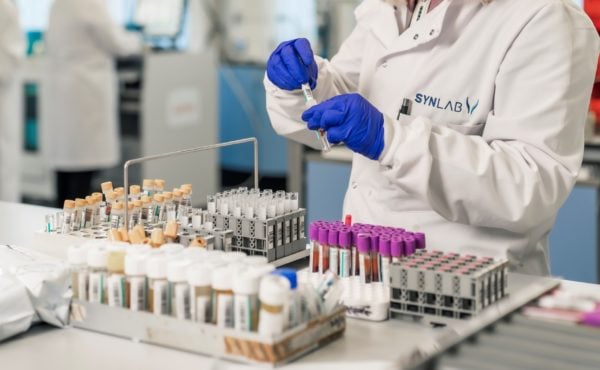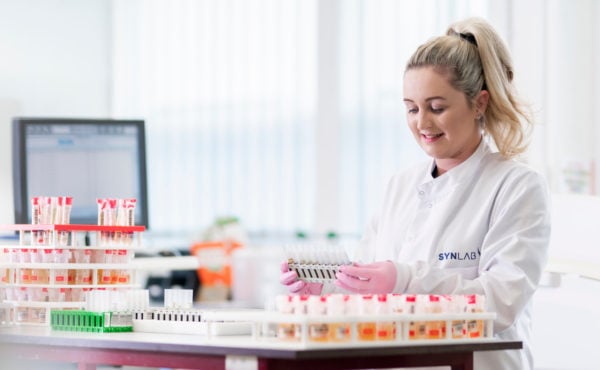Published: 20th December 2018
Did you know cannabis is the most commonly used drug in the UK?
According to a recent report* 2.4 million adults aged 16 to 59 have used cannabis in the last year and our own laboratory analysis supports this. In the last 12 months 44% of positive tests results were a result of cannabis use.
With the legalisation of medicinal cannabis, we took a closer look at the drug, oils and their potential impact on drug testing in the workplace.
Cannabis, cannabis oil and CBD oil.
When we talk about cannabis today, it’s important to make a clear distinction between cannabis, cannabis oil and CBD oil.
Up to 104 cannabinoid substances have been found in the cannabis plant. Cannabinoids are naturally occurring chemical compounds, some of which act on cannabinoid receptors in cells, which then affect neurotransmitter release in the brain.
The most notable cannabinoids are delta–9–tetrahydrocannabinol known as THC or Δ9-THC, cannabidiol known as CBD and cannabinol known as CBN which is closely related to CBD. THC is the primary psychoactive constituent found in cannabis used by recreational users to get “high”.
Cannabidiol (CBD) is non-psychoactive and it has been suggested that it can be used to relieve pain associated with conditions such as arthritis. It is also under investigation as a medicine to alleviate depression and anxiety.
Cannabis
Cannabis is the name given to the herbal material taken from the cannabis plant or from the resin and extracts of the plant. It is usually smoked, either on its own or with tobacco in a cigarette style joint or in a cannabis pipe. The effects start within a few minutes and can last for 24 hours or more. Cannabis can also be baked into foods, usually cakes and biscuits, and eaten.
Cannabis Oil
Often used for recreational use generally contains more than 5% of THC. There has been confusion recently, as quite often legal CBD oil is being marketed and sold as cannabis oil; however, these are two different products. Actual cannabis oil has a high level of THC and is not legal in the UK.
CBD Oil
Some cannabis products such as CBD oil are available over the counter, but these are heavily regulated in the UK and the plant that they are derived from must contain less than 0.2% of psychoactive compound THC.
It is not classed as a medicine by the Medicine and Healthcare Products Regulatory Agency (MHRA) and is therefore considered a supplement, no health benefits may be claimed for it.
What are the laws on cannabis?
Cannabis is currently a class B controlled drug under the Misuse of Drugs Act 1971.
However, some specialist doctors listed on the General Medical Council’s register are now able to legally prescribe cannabis-based products to treat more ailments.
There are few conditions where cannabis has been proven to have effects and so the number of prescriptions for cannabis should remain low. These conditions include cachexia (chronic weight loss) caused by HIV, nausea and vomiting caused by chemotherapy and some neuropathic pain from conditions such as Multiple Sclerosis.
It is unlikely that a person suffering from these conditions and needing cannabis medication would work in a safety critical environment.
There are currently no government plans to legalise cannabis for recreational use in the UK.
How will recent and proposed changes impact drug testing in the workplace?
Cannabis has a reputation for being one of the least dangerous of the illicit drugs, but in the workplace it can be one of the most dangerous.
THC – the psychoactive constituent in cannabis, causes loss of balance and co-ordination, decreased concentration, alertness and also reaction time; increasing the probability of accidents in the workplace. Not only does cannabis have a short term effect, it has been known to lead to memory loss and paranoia in long term users.
Individuals who use CBD oil may have concerns about whether it will cause them to fail a drugs test.
A urine or saliva drug test for cannabis at SYNLAB Laboratory Services looks for THC or its metabolites. Commercially available CBD oil contains cannabidiol. It contains little, if any, THC. Therefore, the use of CBD oil should not give rise to a positive THC urine or saliva result if used according to the recommended dosing instructions. However we advise that if CBD oil is being used, then the condition for which it is being taken should be declared to Occupational Health, as this itself may be a risk in a safety critical environment
It is recommended that all products, whether prescribed or purchased over the counter should be declared at the time of sample collection to aid accurate interpretation of results. Any medicines or supplements that are not relevant to the interpretation of the result will not be identified on the report, so donors can declare these knowing that we will keep this information in confidence.
Testing for cannabis
The following methods of testing are most commonly used to screen for cannabis in the workplace:
Urine: Urine is the easiest sample medium used for cannabis detection. Around 95% of the organisations SYNLAB Laboratory Services work with utilise urine testing as their method of choice. Within the workplace urine is considered to be the gold standard across the industry as it’s highly reliable and easy to collect and analyse.
Saliva: Particularly useful in situations where toilet facilities are not readily available, saliva testing is an alternate and unobtrusive method. With a narrow window of detection, saliva is used to determine if cannabis use has been very recent, and is the reason that the police use this as a roadside screening method i.e. is the person fit to drive right now?
To find out more about testing for cannabis, or to book your sample collection appointment, contact us here.
Click here for further information on workplace drug and alcohol testing.
References: *ACMD Reports & Drug Wise Report released 2017




